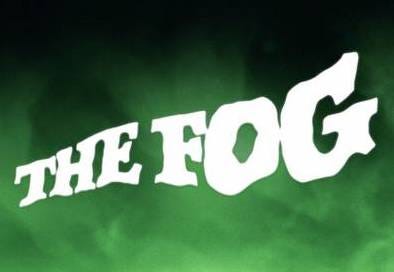#Blocktober begins here
A fog, a phobia—ennui, impotence, insanity—powerlessness, horror—and other attempts to describe the dreaded block
Welcome to the 100th issue of Subtle Maneuvers—and the first issue of #blocktober, my three-part series on creative blocks.
The hashtag is a tongue-in-cheek nod to Jami Attenberg’s #1000wordsofsummer, an annual group writing sprint suffused with encouragement and camaraderie. Last summer, I was trying to think of a similar exercise that I could host here, but more in keeping with the spirit of this newsletter (overcaffeinated, underconfident, frustrated but hopeful). Looking at the calendar and my notes for possible future issues, it hit me: Blocktober!
The truth is that so much of my creative life has been defined by blocks (more on that later), and so much of what I’ve written in my Daily Rituals books and in this newsletter has been driven by a desire to understand how other people do it—I mean, how they do ambitious creative work consistently, day after day and year after year, despite all the obstacles in their way. How they don’t get blocked, or don’t stay that way for long.
I’ll admit to one more motivating factor. Last year, the bestselling author Ryan Holiday mentioned my books in his newsletter, in a very positive light, and yet something he wrote has been eating at me ever since. Here’s the mention:
One book that did this for me this week was Mason Curry’s Daily Rituals: Women at Work. I’ve written about and recommended the first book Daily Rituals: How Artists Work (Tim Ferriss has a great audio edition) and obviously I knew that a sequel existed...because it was on the shelf of my own bookstore (one perk is that I can ‘steal’ from myself now). But for some reason, I hadn’t really read it. Quite enjoyed it this time, especially as a parent. Both books are worth reading and lots to follow up from in the bibliography. I just wish Mason could be more prolific like some of the artists he profiles!
That last sentence . . . It’s the friendliest possible criticism—not even a criticism, really—and yet it stung. I wish I could be more prolific, too! Why haven’t I been?? This #blocktober series is, in part, a search for an answer.
It will extend over three issues. Today, I want to try to capture how blocks feel. Then, on October 17, I’m going to attempt to diagnose what causes blocks, and in the third and final issue, on October 31, I will offer some solutions. Along the way, I hope you’ll chime in with your own ideas and experiences in the comments section. (Or, to send me a private note, just reply to this email.)
If you’re reading this and you’re not already a subscriber, sign up now to receive future issues directly in your inbox. It’s free, though paying subscribers help support this newsletter (and also get an invite to the subscriber-only Discord).
OK—What are blocks, anyway?
When I announced #blocktober in the last issue, I invited you all to email me with your own histories. (Thanks to everyone who wrote in.) One reader emailed with a question: What is my definition of a block? I fired off a quick reply:
I guess my definition of a block is still forming, but I’m particularly interested in people who have an idea for a project, and have the time/resources they need to begin, but somehow just can’t seem to do it.
I think that’s a good starting point, but what’s missing is a description of how utterly miserable this condition is; I don’t think we can understand and potentially solve blocks without first acknowledging how uniquely frustrating they are. So here are seven definitions from some notably articulate sufferers:
Blocks are a kind of brain fog
Perhaps my favorite writer on the experience of being blocked is the American essayist Vivian Gornick, who has described her own struggles with writer’s block in several places. Here’s one example, from her 1996 book Approaching Eye Level:
I had been wandering around the apartment for hours, avoiding the desk. Couldn’t think, couldn’t write. My head filling up with fog, mist, cotton wool, dry ice; the fog rolling in through the window tops. The usual. The daily experience. The condition I struggle with from nine in the morning on, fighting to occupy a small clear space in my head until two or three in the afternoon when I desert the effort, feeling empty and defeated and as if I haven’t heard the sound of a human voice in a thousand years.
That sounds all too familiar to me—though it can get even worse . . .



